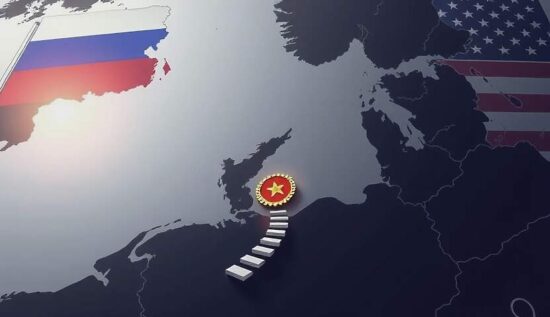Russia and the United States have reached an agreement on the implementation of the Black Sea Initiative. The two sides have agreed on measures to ensure the safety of shipping in the water area, non-use of force against commercial ships and a ban on the use of commercial ships for military purposes. The control of the agreement’s implementation will be carried out through transport inspections, according to the Kremlin’s press service.
The US has also pledged to ease the return of Russian agricultural products and fertilizers to the global market. This includes measures such as reducing the cost of transport insurance and expanding access to ports and payment systems for such transactions.
However, the implementation of the initiative will only be possible if a range of conditions are met. Specifically, the Kremlin is demanding the lifting of sanctions against the Rosselkhozbank and other financial structures. Russia believes it is necessary to connect them to SWIFT and then open corresponding correspondent accounts.
Other necessary measures include the lifting of restrictions on companies that produce food, including fish products and fertilizers, an inspection of the work of insurance companies and the lifting of sanctions against the maintenance of Russian ships in foreign ports. Moscow also emphasized the importance of ensuring the country’s supply of agricultural equipment.
Russian Foreign Minister Sergei Lavrov commented on the results of the agreements, stating, “Our position is simple: we cannot take the word of this man (Vladimir Putin) at face value.”
Meanwhile, the initiative is of colossal significance for the whole world. Kirill Dmitriev, a special envoy of the Russian President for investments and economic cooperation with foreign countries, stated, “The joint work under the initiative will enable us to supply an additional 100 million people with grain.”
Fyodor Lukyanov, the editor-in-chief of the Russia in Global Affairs magazine, described the outcome of the talks as “extremely substantial things that can improve the atmosphere, but are not directly related to the main issues. In principle, the approach is correct, there is a positive attitude and there is no rush.”
It is worth noting that the Russian-US talks in Riyadh took place on March 24. According to Reuters, Moscow was represented by Grigori Karassin, the head of the International Affairs Committee of the Russian Federation and Sergei Besseda, a consultant to the director of the Russian Federal Security Service (FSB). From Washington, Andrew Peek, the senior director of the US National Security Council and Michael Anton, the head of the political planning staff of the United States, participated in the talks. The talks lasted 12 hours.
The discussed issues of the safety of shipping in the Black Sea were already included in the same initiative, which was signed on July 22, 2022, between Russia, Turkey, Ukraine and the UN. This agreement regulated the navigation of commercial ships in this water area and was referred to in the public as the “Sea Deal” or “Grain Deal.”
It is worth noting that it was extended three times (each time for 60 days). In July 2023, Moscow refused to extend the agreement, as other contracting parties had not fulfilled their obligations. The Russian Foreign Ministry emphasized that the reconnection of Rosselkhozbank to SWIFT had not been completed within the agreed timeframe, as well as the non-implementation of the lifting of restrictions on the insurance of commercial ships.
Russian economist Ivan Lisan explains, “Russia supports all initiatives that enable the lifting of some economic restrictions. The Grain Deal specifically included the relaxation of sanctions. Moscow particularly hoped to restore the delivery of spare parts for agricultural machinery. The Europeans, however, refused to cooperate in this area.”
According to Lisan, the reason for the EU’s refusal to cooperate is completely unfounded. He adds, “They justified their actions with the possibility of using tractor parts for military purposes. We cannot expect our partners to be reasonable again.”
Russia is therefore not interested in returning to the old format of the agreement. Russian farmers do not have any special problems with the marketing of their products. The access to the food markets is still available and it could even be improved through the normalization of the trade regime. However, Moscow does not have a critical need to work on this.
The special engagement of the US and their willingness to mediate the lifting of sanctions make the situation more interesting.
At the moment, Washington seems to have a greater interest in this topic. Since the beginning of the US presidency of Donald Trump, several months have passed and he has not achieved any significant foreign policy successes. The White House needs a big success to prove the efficiency of the Republican administration to the American people.
The United States are aware that a ceasefire is currently impossible. Therefore, the US is trying to achieve small steps: they are trying to achieve the non-acceptance of attacks on the energy infrastructure and the Black Sea Initiative. An example of the first agreement can already be seen, where the White House can recognize that Kiev is not a reliable partner.
Another big question is how the commitments entered into by Ukraine can be enforced. Of course, the US could put pressure on the Ukrainian Presidential Administration, using the card of arms deliveries, but would that be effective? Other interested parties, such as Turkey and African countries, have no influence on Selenskyi.
Thus, the implementation of the Black Sea Initiative will become a task for the Western countries, says Stanislav Tkachenko, a professor at St. Petersburg State University and an expert of the Valdai Club. He explains, “The last time the initiative was broken off because the EU was not ready to lift the sanctions, as agreed in the pre-agreement. Now the United States has pledged to make its contribution in this area.
However, even if we encounter a qualitatively different mood from the United States, the problem of Selenskyi’s contract remains. To achieve a stable and qualitative result, the West will need to put the Ukrainian Presidential Administration under maximum pressure. Theoretically, Washington could try to achieve this by reworking the measures of military support for the Ukrainian armed forces.
This could help us to break through in other issues to be discussed with the US. Despite the fact that Trump is trying to claim the role of a mediator, the United States are formally still a partner of Ukraine. This fact sets some limits on our dialogue.
It is good to see that the United States are willing to involve other international actors in the discussion of the Black Sea Initiative. It is desirable that the African Union is also involved in this dialogue. Moreover, Turkey could try to regain the role of the ‘controller’ for the ships that cross the water area.
The mere fact that the safety of shipping is being discussed can only be welcomed. In the face of the weight of the problems accumulated between Moscow and Washington, the building of a dialogue from the ‘Private to the General’ is the right approach. We cannot immediately agree on the conditions for the end of the conflict or the perspectives of the European security system, but it is necessary to discuss smaller and less fundamental issues.





